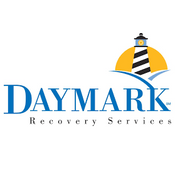How to Talk to a Loved One About Their Addiction

A loved one’s addiction can affect every member of the household. Alcohol and drug abuse can make it difficult to be a reliable and attentive parent and supportive spouse, and personal relationships can be damaged beyond the home as well. Sometimes, the substance abuser doesn’t realize or won’t acknowledge how the habit has drastically altered their lives and those around them, which can make broaching the topic of getting help difficult. To make the discussion more constructive, here’s some advice about what to do and what to avoid.
Do:
Ease into the subject.
Your loved one might be embarrassed or defensive when their addiction is mentioned, so don’t bring it up at the beginning of the conversation. Let them become more comfortable with the dialogue by first mentioning your concerns. You can bring up how you’ve noticed a change in their behavior, appearance, or mood. You can then mention you’ve noticed they’ve relied more on alcohol or other substances recently.
Try to pinpoint the source of the problem.
 Once you discuss how you’ve noticed a stronger reliance on drugs and/or alcohol, ask whether they have been feeling depressed and for how long. The person could be self-medicating to cope with their emotions. You can use this opportunity to mention how counseling and recovery programs are designed to help people find healthier ways to manage their feelings.
Once you discuss how you’ve noticed a stronger reliance on drugs and/or alcohol, ask whether they have been feeling depressed and for how long. The person could be self-medicating to cope with their emotions. You can use this opportunity to mention how counseling and recovery programs are designed to help people find healthier ways to manage their feelings.
Don’t:
Place blame and criticize.
Feelings of depression, guilt, anxiety, and symptoms of other mental health issues can sometimes lead to addiction. Keep this in mind when you talk with your loved one about their substance abuse problems. They should know your words come from a place of love and support. Stay away from making statements that could be viewed as critical, as it could make the person’s feelings of anguish worse and push them deeper into addiction.
Expect immediate action.
Although you can bring up treatment programs, it might take more than one conversation for your loved one to warm to the idea. To make sure the person sees recovery as the only option, speak to other close friends and relatives before the meeting. Make sure everyone is on the same page, taking the stance that they won’t be enablers.
If you or a loved one suffers from addiction, the professionals at Daymark Recovery Services will provide you with the tools to lead a sober, happy life. Based in Lexington, NC, the CARF®-accredited agency provides outpatient services and residential treatment programs to residents in multiple counties throughout the state. To start on the path to a better quality of life, call (336) 242-2450. Visit the center online for a list of locations.
About the Business
Have a question? Ask the experts!
Send your question

